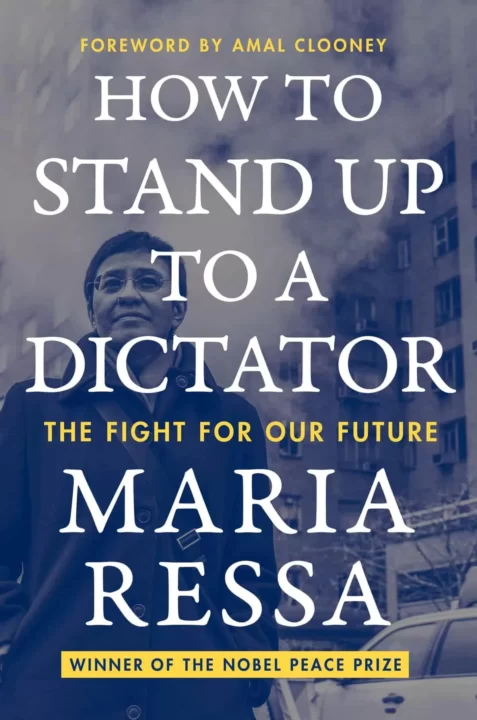Today's Saturday • 12 mins read
Dictatorship, or autocracy, is a system of government ruled by one person with absolute power, with no legal restraints on his actions or decisions.
- The first dictators were military leaders in ancient Rome, most famously Julius Caesar. They seized power through force and ruled for as long as they lived or until they were deposed.
- In the Roman Republic, a magistrate was given absolute power for a short time to deal with a crisis. That magistrate was called “dictator” in Latin.
- Modern dictators are hard to identify, since most of them masterfully sway public opinion in their favor.
“A modern dictator is a pre-approved product of a manipulated mandate.”
The Making of A Dictator
People do not elect dictators in free and fair polls.
In the past, dictators wore military uniforms and were easy to spot. With time, they felt they had to blend in. So they started to dress like the people of their country.
All dictators start with fantasies of ruling a country like an Emperor. But they know people do not elect dictators in free and fair polls, at least not when they know the person is a power-crazed leader.
So, modern dictators manufacture a charismatic hero persona to manipulate public approval. Then they engineer a cleverly controlled election. Once elected, they take complete control over all decisions of the government.
Then, they make it even harder for a politically naive citizen to see them as a modern-day dictator. First, the caged media: in a world of post-truth and filter bubbles, they glorify dictators, presenting them as everything from compassionate to virtuous. Second, the tamed law: often manipulated to legitimize the rule and silence critics.
An example:
During the Sierra Leone civil war, the US-educated Charles Taylor traded weapons for blood diamonds with the rebels. He was arrested and sent to a maximum-security prison in Boston. He escaped in 1985 and went under, before resurfacing in Libya as a protégé of Muammar Gaddafi.
Twelve years later, Taylor was running for the president of Liberia. He campaigned with the slogan:
“He killed my ma, he killed my pa, but I will vote for him.”
He won 75% of the votes.
Signs of A Modern-Day Dictator

1. No Dissent
A dictator hates criticism.
He brazenly uses every democratic force to silence dissenters. Protestors and their supporters are marked as threats to the nation’s sovereignty, false cases are filed against them, and locked away.
The ones left free are either his worshipers or silent citizens, all paying heavy taxes.
2. Anti-Democracy
The dictator does not believe in democracy, even though he publicly proclaims otherwise. Sometimes, though, the mask slips, and a stray comment reaches the public, “There’s too much democracy in this country.”
Dictatorships craftily dismantle parliamentary and constitutional systems to take control of the police and judiciary. The supreme power rises above accountability.
People’s concerns stop getting addressed or represented in public and political discourse.
What looks like democracy no longer works like democracy.
3. Media Manipulation
The media is heavily censored and controlled by the dictator, resulting in a “caged” press.
The news of our times is that governments across the world are increasingly gagging press freedom.
The Reporters Without Borders (RSF) releases an annual Press Freedom Index. In 2024, they note, “Many governments have stepped up their control over social media and the Internet, restricting access, blocking accounts, and suppressing messages carrying news and information.”
Hannah Arendt, one of the most influential political theorists of the 20th century, said that “constant lying by a propaganda machine” leads to the people being no longer able to distinguish between truth and lies, right and wrong. The government can then do whatever they want with such a people.

“The moment we no longer have a free press, anything can happen. What makes it possible for a totalitarian or any other dictatorship to rule is that people are not informed; how can you have an opinion if you are not informed? If everybody always lies to you, the consequence is not that you believe the lies, but rather that nobody believes anything any longer. This is because lies, by their very nature, have to be changed, and a lying government has constantly to rewrite its own history. On the receiving end you get not only one lie—a lie which you could go on for the rest of your days—but you get a great number of lies, depending on how the political wind blows. And a people that no longer can believe anything cannot make up its mind. It is deprived not only of its capacity to act but also of its capacity to think and to judge. And with such a people you can then do what you please.”
— Hannah Arendt
Democracy Report by the Stockholm-based think tank V-Dem says:
“First, (they) seek to restrict and control the media while curbing academia and civil society. Then (they) couple these with disrespect for political opponents to feed polarisation while using the machinery of the government to spread disinformation.”
4. Rabid Nationalism
An extreme form of nationalism takes shape, fueled by propaganda, fear, and a sense of threat.
People are spurred to show intense feelings of loyalty and pride towards their nation. The dutiful media plays up aggressive attitudes, hostility, and even hatred towards other nations, cultures, or groups.
Rabid nationalism suppresses dissenting opinions, marginalizes minority groups, and even incites communal violence.
Any stance or speech against the dictatorship is deemed anti-national. Modern dictatorships, whatever their initial character, gradually (or rapidly) take on the features of jingoistic nationalism.
“The dictators of this post-truth era are masters at swaying public opinion in their favor.”
5. Unreal Bubbles
Dictators live in unreal bubbles.
This alternate reality is far from the experiences and perspectives of the people they govern. This bubble is maintained through:
- Limiting their interactions with the outside world, minimizing the slip of the mask.
- Intimidation, repression, and threat of violence, to the point where people become sheep.
- Keeping a small group of loyal sycophants and insiders who reinforce their views and beliefs.
- Controlling the flow of information, censoring free speech and limiting access to information.
Actually, they are extreme narcissists who need people to hero-worship them, almost like turning an entire country into their own personality cult.
“Of four occupations sampled, politicians scored highest in total narcissism, as well as in leadership and authority.” — Robert Hill & Gregory Yousey
Types of Autocracy or Dictatorship
- Military dictatorship: The military exercises control over the government, often through a military junta or council.
- Personalist dictatorship: Power is tightly held in the hands of a single individual, often a charismatic leader, who maintains control through a clique of personal loyalty and patronage.
- One-party dictatorship: A single political party dominates the government, often through rigged elections and suppression of opposition parties.
- Monarchy: Power is inherited by a single individual or family, often with divine sanction.
- Theocracy: A of autocracy where power is held by religious leaders or institutions, often with the belief that their rule is divinely ordained.
- Colonial dictatorship: Where a foreign power exercises control over a colony or territory, often through a small number of appointed officials.
- Authoritarianism: A political system in which a leader or a small group of leaders wields a lot of power, but not absolute power. They are not accountable to the citizens, and maintain control through restriction of individual freedoms and civil liberties.
- Totalitarianism: A dictatorship where the state exercises total and unquestioned control over all aspects of society, often through a pervasive security apparatus and extreme censorship. The Supreme Leader of North Korea is a totalitarian leader.
Fact: Mussolini, in the early 1920s, coined the term totalitario and gave the slogan: “All within the state, none outside the state, none against the state.”
Psychology of A Modern Dictator
Dictators are typically Machiavellian, paranoid, and grandiose narcissistic people who seek sycophancy and submissiveness. They all seem to have excessive paranoia, ruthless brutality, and—despite their acts—a desire for admiration.
Four common psychological signs of a modern dictator are:
- Have two faces — one public image of a benevolent and compassionate leader, and one private persona marked by ruthless control and relentless pursuit of power.
- Manipulate information and use propaganda to maintain an illusion of infallibility, fostering a cult of godlike-personality around themselves.
- Their arrogance and utter disregard for others make them believe they are forever above the law.
- Have an inflated sense of self-importance, are exploitative, and demand obsequiousness.
Modern dictators fool people into believing that:
- Their Leadership is the Only Source of Stability: They convince the public that without their firm hand, chaos and disorder would prevail, suggesting that their rule is essential for peace and order.
- Their Decisions Propel National Success: They craft a narrative that credits them alone for any national achievements, whether in economics, sports, or international stature, fostering a sense of pride that’s directly tied to their leadership.
- They Are Benevolent Protectors: Through propaganda, they present themselves as compassionate leaders deeply concerned with the welfare of their people, often exaggerating their role in providing for the populace.
- Opposition Is the Enemy of Progress: Dictators often portray any opposition or dissent as threats to national security and prosperity, convincing the public that criticism of their regime equates to betrayal of the country.
One of the disturbing manifestations of this ‘post-truth era’ trend is the contempt for experts and expertise. Psychology is one of the first educational fields to be shut down under authoritarian or totalitarian regimes. They frequently charge psychologists with intellectualism, attempts to incite unrest and subvert the state.
We know autocrats hold their own, often bizarre, version of reality and bulldoze people who oppose their ideas and vision. Their distorted psychology could result from dysfunctions in two parts of their brain: the lower frontal lobe and the amygdala. Such faulty brains found in psychopaths block out their moral decision-making and impulse control.
They typically remain paranoid about something or someone harming them mortally. Mostly, they are high on psychopathy and grandiose narcissism.
Dictators get high on power, an insatiable drive that gets progressively worse, or malignant, with time. — James Fallon, Ph.D.
What is the Democracy Index
Unfortunately, democracy is slowly being taken away from us. More than half the world is now not living under full democracy.
Democracy Index ranks countries by looking at factors like freedom of expression, constraints on media and political opponents, the reality of democracy in decision-making, and the quality of governance.
Four types of regimes based on Democracy Index scores (maximum 10; minimum 0):
- Full democracy (8.01 to 10),
- Flawed democracy (6.01 to 8.00),
- Hybrid democracy (4.01 to 6.00), and
- Authoritarian regime (0 to 4.00).
Three lowest scoring countries are North Korea, Myanmar, and Afghanistan.
Ukraine is a hybrid democracy, while Russia is an authoritarian regime.
In 2016, the United States was downgraded from a full democracy to a flawed democracy.
In 2021, Spain and Chile were downgraded from full democracies to flawed democracies, while Ecuador, Mexico, Paraguay, and Tunisia were downgraded from flawed democracies to hybrid regimes.
In the same year, Haiti, Lebanon, and Kyrgyzstan were downgraded from hybrid regimes to authoritarian regimes.
How Democracies Can Turn Into Dictatorships
Any democracy is not a static system. It can change into a dictatorship with the help of some key factors.
Some democracies that are not truly democratic can gradually turn into dictatorships. It starts when an autocratic leader, after getting elected, begins curbing rights or freedoms of the people, reducing their participation in the framing of decisions that affect their lives.
An authoritarian government can ultimately go on to assume unlimited power for the topmost leader, leaving little to no power to the people.
The most common way democracies become dictatorships is through military coups or revolutions. This can happen when there are significant economic and social inequalities in society or when there is turmoil in government.
It can also happen if the government has been in power for too long and the population feels like they need a new leadership.
How We Can Prevent Future Dictatorship
Preventing a future dictatorship is a challenging task.
Many factors contribute to the rise of a dictatorship, and not all of them can be controlled.
Violence is not the only, or even the most effective, means to stop dictators from assuming control. Nonviolence can and has been successfully used to replace autocracies with democracies.
One step that works best to help prevent authoritarianism from happening:
Building a strong social contract toward multi-ethnicity and diversity. If people have a strong sense of belonging as a unifying nation, then they will not want to vote for someone who is trying to undermine democracy.
However, that is a hope riddled with holes in today’s volatile world.
Book: How To Stand Up To A Dictator by Maria Ressa
Maria Ressa won the 2021 Nobel Peace Prize, the UNESCO World Press Freedom Prize in 2021, and was TIME Magazine’s Person of the Year in 2018. She wrote the excellent book “How to Stand Up to a Dictator” on her experiences of standing up against Rodrigo Duterte.
- Rodrigo Duterte was the president of the Philippines from 2016 to 2022.
- The current president of the Philippines is Ferdinand “Bongbong” Romualdez Marcos Jr., son of former dictator Ferdinand Marcos, who escaped the country because of civil protests.
- Ferdinand Marcos (who ruled the Philippines from 1965 to 1986) fled to Hawaii in 1986. He took with him 22 crates of cash valued at $717 million, 300 crates of jewelry, and deposit slips to banks in the US, Switzerland, and the Cayman Islands worth $124 million.
- Marcos Jr.’s mother, Imelda Marcos, was sentenced to a minimum of 42 years in prison in 2018, for creating private foundations to hide her unexplained wealth.
- More interestingly, Sara Duterte, commonly known as Inday Sara, the current vice president, is the daughter of Rodrigo Duterte.
Final Words
Throughout history, dictators get themselves selected through engineered elections. Once in power, they unleash their propaganda — a constant stream of lies.
Shifting narratives rob people of their ability to form stable opinions. They lose faith in the truth. This is when the dictator gets them to believe and do anything he wants.
Only rarely do we see a break from this pattern. The best one being the Roman Emperor Marcus Aurelius, who historians see as a democratic leader despite being selected rather than elected.
√ Also Read: 10 Weird Things Psychopaths Do: Their Unusual Behaviors
√ Please spread the word if you found this helpful.

